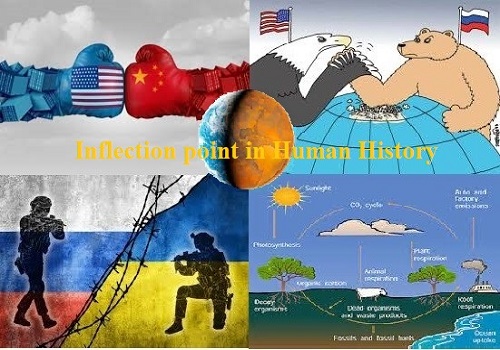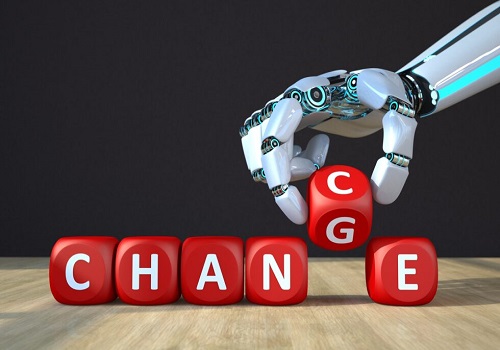Consulting & Training
Given the complexity of the topic, for consulting and training activities, DSI avails itself of the collaboration of Morris Consulting, an English company with offices in London, Rome and Milan – specialized in strategic consulting, marketing, communication and acceleration of Start Ups.
Historical Inflection Point

Pandemic and its consequences, ongoing conflicts, instability of the geopolitical situation, advent of potentially disruptive technologies place us in front of the challenges posed by an inflection point in history, that is, in a critical moment that marks a sudden, dramatic and unpredictable change in the course of events.
This phase is defined by many as a “crisis”, a term whose generic nature does not help to outline its exact contours, and therefore the strategies to counteract it. Perhaps it would be more correct to define it as a “catastrophe” in the mathematical sense of the term, that is, the passage of a system in equilibrium to another system in equilibrium through an unpredictable discontinuity.
Discontinuity is a destabilizing element that generates: anxiety, fear, panic, and uncertainties/crises interconnected with them.

Rapidity of technological change.
The advent of artificial intelligence, automation, and digitalization are transforming various sectors in unpredictable ways.

Environmental crisis.
Climate change and the growing awareness of sustainability have altered the priorities of both consumers and companies.

Geopolitical instability.
International conflicts, trade wars and political tensions make the global context extremely volatile, especially in the energy sector.

Global pandemic.
The recent COVID-19 pandemic has shown how unforeseen events can disrupt global supply chains and alter market dynamics.
For a company, navigating this landscape requires a paradigm shift from traditional management models. Decisions can no longer be based on linear and predictable approaches, on rigid and long-term strategic plans. Instead, they must develop the ability to adapt quickly and anticipate changes through accurate and contextual analysis combined with an effective holistic approach.
Awareness, consciousness is the fundamental element to methodologically approach discontinuity. As we become aware of objective reality, the behaviors of everyone, individuals, companies, communities, institutions, change, even radically.
Holistic Approach
Adopting a holistic approach means considering the company as a complex system, in which each part is interconnected with the others.
This approach has several advantages:
Global vision.
It allows you to have an overall view of the company, preventing different departments from working in silos. Each decision must be evaluated in terms of its impact on the entire system.
Organizational resilience.
An organization that adopts a holistic view is better able to adapt to disruptions, as it considers a wider range of factors in the decision-making process.

Integration of skills.
A holistic approach requires collaboration between different areas of expertise, facilitating innovation and the creation of creative solutions to problems.
Planning alternative scenarios.
Preparing for different scenarios is essential to manage uncertainty. Analytics help create contingency plans that can be activated in the event of sudden changes.
At a historical inflection point, companies must evolve their management methods to remain competitive.
Early analysis and adopting a holistic approach are essential tools to navigate this environment effectively.
Investing in these processes not only helps mitigate risks, but also allows you to seize new opportunities in an ever-changing world.
Companies that can embrace complexity and manage uncertainty with flexibility will be the ones that will thrive in the long term.

